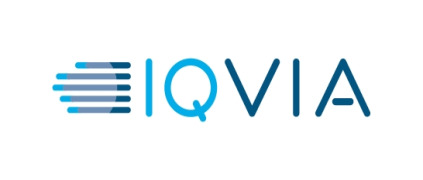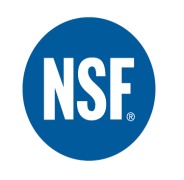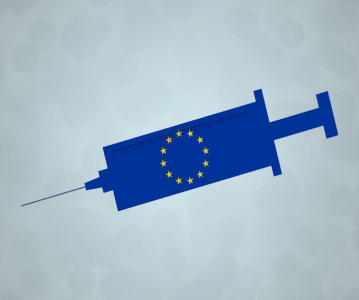Brexit impact on UK pharma industry a moveable feast, industry experts tell CPHI Discover

The UK’s withdrawal from the European Union has meant the pharmaceutical industry has had to adapt to some monumental changes in terms of research, regulatory affairs, and trade. In this CPHI Webinar, three industry experts discussed what the future may hold for UK pharma in a post-Brexit world
It will take a long time to fully assess the impact and implications of the UK’s decision to leave the European Union on the country’s pharmaceutical industry, because Brexit should be viewed as a lengthy process rather than an isolated event, experts speaking at a CPHI Discover webinar on Tuesday.
Framing the discussion in the session, Beyond Brexit – The Future of British Pharma, Virginia Acha, Associate Vice President & Global Lead, Global Regulatory Policy, MSD said much has been learned since the first days of Brexit.
“Critically, we were talking about and expecting Brexit as an event but it’s not an event, it’s a process and going way beyond the actual Brexit date itself and this is why we need to be as focused now as we ever were about how we reposition the UK in the international landscape,” she told the audience.
She said that whereas in the first years since the Brexit referendum, the focus used to be on what the country was leaving, “now the direction of our work needs to be towards where we’re going, what ambitions do we have, both in terms of regulatory policy setting and more generally, for healthcare and patients in the UK.”
“We also need to be aware that while we were busy in the UK and Europe managing the Brexit process, regulatory science has moved on and some of the examples around real world evidence and genomics really show where that pressure has been and where the opportunities are now to reposition,” Ms Acha said.
Peter Gough, Vice President, Pharmaceutical Services at NSF International said that since Brexit, the UK had chosen to place itself as a third country outside all the European institutions including the EU, the customs union and the EEA: “We’re sitting there in splendid isolation, outside everything, which provides opportunities and challenges.”
He told the webinar it was important to note that the Northern Ireland protocol effectively means that Northern Ireland remains in the European system and therefore most pharmaceutical regulatory changes only apply to Great Britain.
“From next year, we’re going to face the challenge of how do we actually get product from Great Britain into Northern Ireland because effectively, that will be exporting to the EU and will require retesting om importation and re-QP certification,” he said.
Providing a clinical research perspective, Angela Macfarlane, Senior Market Development Director UK & Ireland, IQVIA said she was “cautiously optimistic” that there would be a fresh start for global pharma investment in the UK, listing initiatives such as the transformation of the UK clinical research ecosystem, realising the promise of precision medicine via the UK’s genomics strategy, accelerating license and HTA approvals and the Innovative Medicines Fund.
Ms Macfarlane said the global coronavirus pandemic had been a catalyst for life science cooperation and that was one of the real defining features of how UK industry, the country’s National Health Service, government and regulatory agencies really came together to work at pace and scale to discover COVID treatments and vaccines.
“That earning has now been embedded into policy; collaboration is going to be the key to continuing to develop UK life sciences on a global stage,” she added.
She cited National Institute for Health Research data which showed end to end approval times at UK regulator, the Medicines and Healthcare products Regulatory Agency (MHRA), including the time for applicants to respond, had shortened from an average 8-8.5 days depending on the study type, compared to more than 80 days pre-COVID.
This webinar will be available on demand from 31 May. In the meantime, for details on how to register for this ongoing virtual event, head to the CPHI Discover website


Related News
-
News Patients vs Pharma – who will the Inflation Reduction Act affect the most?
The Inflation Reduction Act brought in by the Biden administration in 2022 aims to give better and more equitable access to healthcare in the USA. However, pharma companies are now concerned about the other potential costs of such legislation. -
News CPHI Podcast Series: What does the changing US Pharma market mean for industry and patients alike?
In this week's episode of the CPHI Podcast Series Lucy Chard, Digital Editor for CPHI Online is joined by James Manser to discuss the political and market changes in the US pharma field. -
News CPHI Barcelona Annual Report illuminates industry trends for 2024
The CPHI Annual Survey comes into it’s 7th year to report on the predicted trends for 2024. Over 250 pharma executives were asked 35 questions, with their answers informing the industry landscape for the next year, spanning all major pharma marke... -
News Which 10 drugs are open to price negotiation with Medicare in the USA?
The Centres for Medicare & Medicaid Services, under the Biden administration in the USA, has released a list of the 10 drugs that will be open to price negotiations as part of the new legislation under the Inflation Reduction Act (IRA). -
News EU Medical Devices Regulation causes unintended disappearances of medical devices for children, doctors state
Doctor groups and associations have appealed to the EU to correct the EU Medical Devices Regulation law that may cause unintended shortages of essential drug and medical devices for children and rare disease patients. -
News 10 Major Drug Approvals So Far in 2023
Last year, 37 novel drugs were approved by the FDA, this was a high number for such a category, and covered many fields including oncology, demonstrating how promising further research is, and how it is only continuing to build. To date, there are alre... -
News Detecting Alzheimer's disease with a simple lateral flow test
A novel rapid diagnostic test for early-stage Alzheimer's disease has been developed using a biomarker binder from Aptamer Group along with technology from Neuro-Bio, the neurodegenerative disease experts. -
News CPHI Podcast Series: outsourcing and manufacturing trends
Listen to the CPHI Podcast Series this June to hear Gil Roth of the PBOA speak with Digital Editor Lucy Chard about the biggest trends and topics to watch in pharma outsourcing and manufacturing at the minute.
Position your company at the heart of the global Pharma industry with a CPHI Online membership
-
Your products and solutions visible to thousands of visitors within the largest Pharma marketplace
-
Generate high-quality, engaged leads for your business, all year round
-
Promote your business as the industry’s thought-leader by hosting your reports, brochures and videos within your profile
-
Your company’s profile boosted at all participating CPHI events
-
An easy-to-use platform with a detailed dashboard showing your leads and performance







